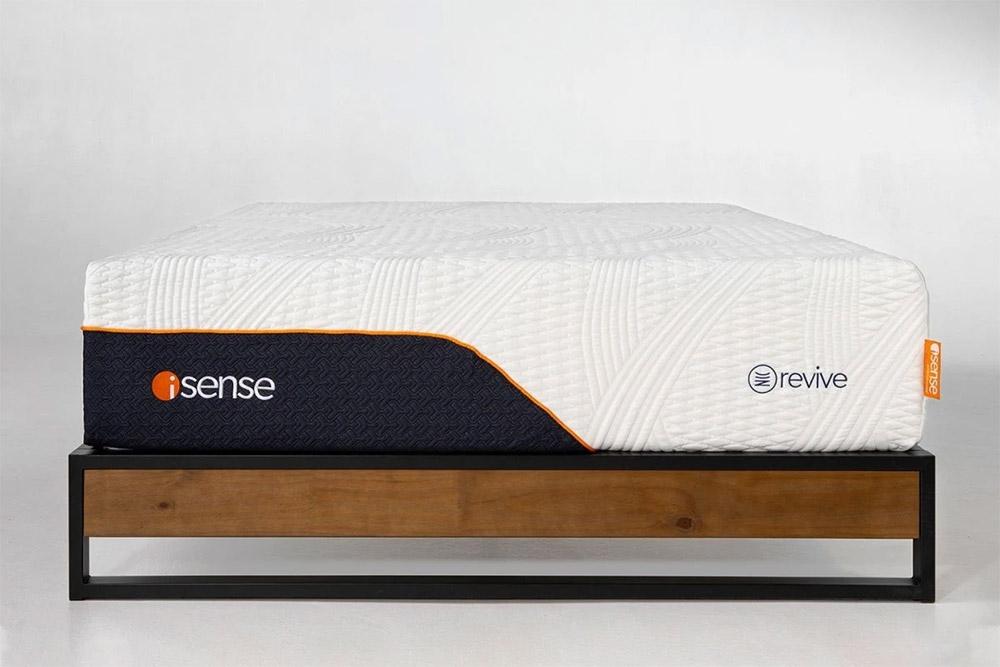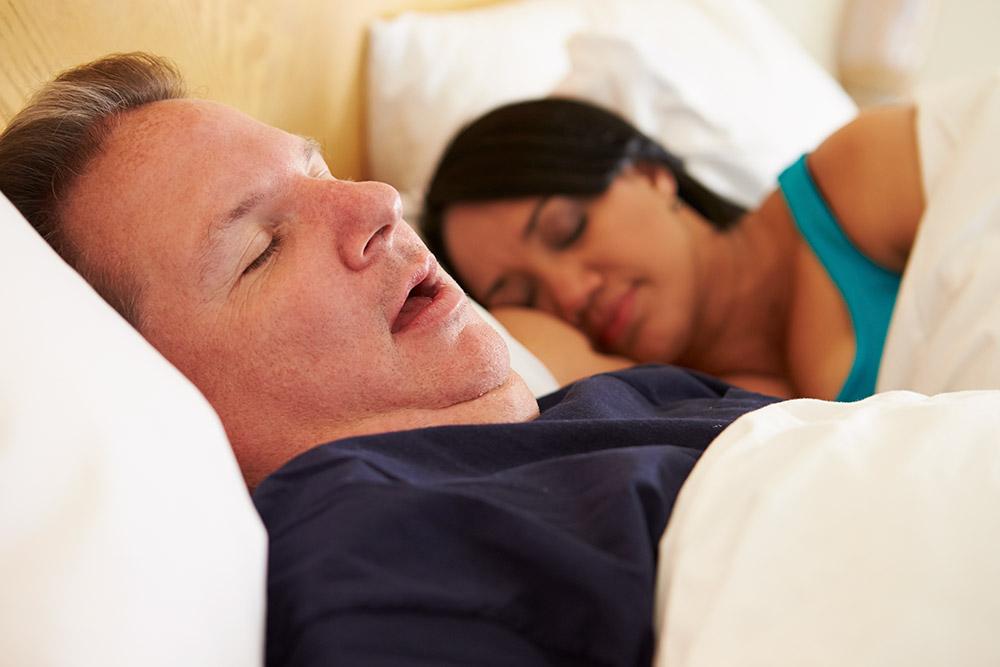We’ve all been there. You know, when you’re lying in bed for what feels like eternity. You reach over, grab your cell phone, hop on google, and search “how to go to sleep.” Immediately you’ll begin seeing the most outlandish, and silly remedies you could possibly think of. In a state of desperation (and sleep deprivation), you may even start convincing yourself that you have just about every sleep disorder on the internet. Don’t worry - I’ve been there, you’re not alone.
After hearing from friends and family and watching the struggle of the ones I love frantically search through endless tips to help them sleep, I’ve found they typically come back with false information. I started to recognize that there’s a huge problem in desperate need for a solution. Often, there were times I would read an article and believe it, only to find out later it was inaccurate. Over time, I’ve learned that when it comes to your health, there’s no room to question what you’re reading and learning. It’s important to get valid information so I can begin creating real lifestyle changes. No more sorting through sleep myths; it’s time to get down to the basics and start making real changes.
Now that I’ve been working at isense for a while, I know my first mistake in the past when struggling to silence my brain was reaching for my cell phone and going to Google for sleep advice. I mean, did I really believe that counting sheep would put me to sleep? Sure, it’s boring, but it’s not relaxing. In fact, according to an Oxford University study, it actually lengthens the amount of time it takes you to fall asleep. Some experts have claimed that we have upward of 50,000 thoughts a day… I don’t think any of us can afford to add another 50 sheep to the count just to get a good night’s rest. It’s best to learn how to properly silence your inner chatter, gain control of when to think—and when not to think—and start a sleep schedule you’ll love. Typically, when someone’s good at something, they studied it. So, this may not happen overnight (literally), but when you cross that finish line, it’ll be metamorphic.
As you read below, you’ll begin to see that in this day and age, these everyday necessities are so simple and easy but yet are rare in our day-to-day lives. We all get so busy with school, family, finances, and all the other fun “adulting duties” that we often put our own health on the back burner. Commit to taking just one step closer towards your perfect sleep routine. Once you have your first goal down, move to the next tip and make it a goal. Do this night after night and you’ll begin to see and feel the difference in your mental and physical health.
Stay away from your cell phone, and any other electronic device for that matter. This rule does not just apply to cell phones. This includes all laptops, tablets, TVs, and any other devices that could be emitting blue light. Yes, you read that right, I’m asking that you remove your cell phone AND television from your bedroom. Trust me, it was hard for me, too. Surprisingly though, once I actually did it, I can truthfully say I don’t miss it. Anytime you’re on your smart device, computer, iPad, etc. you’re taking in an extremely dangerous amount of artificial blue light. When this blue light is emitted, it produces daytime hormones, like cortisol, which result in staying up even later. My cell phone always kept me up for an umpteenth amount of wasted hours. Plus, when I found out that sleeping with my TV on actually increases my chance of cancer, there was no time wasted in making these two quick changes. Not only will this tip help you feel sleepy earlier, resulting in helping you fall asleep quicker, but it will also improve your overall quality of sleep.
The dangers that come with sleeping with electronics is mind blowing—and shockingly enough, at least 50 percent of Americans snuggle up with their cell phones every night. Let’s face it, we’re addicted. If you’re finding yourself running to Google begging for answers on “How to go to Sleep,” putting down your device is an exceptional start.
Scents for sleep. There’s something about the scent of lavender that I adore before bedtime. I love to turn off all the lights in my home, take a long, warm bath, and then use my aromatherapy body lotion. There’s a ton of great oils, lotions, and scrubs out there that pique my interest for my bedtime routine. Currently, I’ve been enjoying my lotion from Bath & Body Works. It’s called “Sleep” lotion with Lavender and Vanilla. They claim it can help calm feelings of stress to help you sleep better—and maybe it’s a placebo effect, but it really works for me.
Interested in why this scent overwhelms by body with that sensation for sleep, I looked further into this. I found that while there has been research done that provides evidence of infants crying less after enjoying a warm bath with lavender oil, it’s not ONLY the scent of lavender. For example, say you like the scent of vanilla and you find that it calms and relaxes you, then maybe that’s the scent you decide to go with before bed. Our bodies crave pattern and love routine. Therefore, if every night you take a warm bath, and then use whichever preferred scent you decide on, your mind will naturally associate that scent with sleep and your body temperature will naturally begin to fall, allowing for quality sleep.
Put on white noise. You’d be amazed how well this works—especially once your body is in a great routine. According to the National Sleep Foundation, 74 percent of Americans feel it’s important to have a quiet bedroom to get a good night’s sleep. White noise does an excellent job of reducing outside noises. This, in turn, reduces your chances of being disrupted while you’re trying to rest. If you’re having trouble falling or staying asleep, white noise can be very useful. Running a fan, air conditioner, humidifier, or white noise machine can assist in masking any noise from inside or outside of the house. Anything that consists of a constant ambient sound that’s soothing to your ears and mind will be suitable. If you sleep with a partner, it can be kind of fun to go through the different sounds and tunes offered through various apps and learn what sounds appealing to you, versus what your partner may prefer. I typically go to sleep with the help of my Sleepace app. I love the Waves of the Ocean soundtrack. Something about the sound of the waves crashing just gives me a sense of relaxation. I used to go to the beach a lot as a child and the repetitive sound of the water washing up on the shore calms me. It makes me forget about all my worries, responsibilities, and duties for the day and lets my brain know that it’s time to quiet down and prepare for a rejuvenating night’s rest.
Last but very not least…
Stop looking at the clock! This one you’d think is a no-brainer, yet we all do it out of habit. Ever wake up in the middle of the night? What’s the first thing you do? Maybe for some it’s to use the restroom, which, by the way, is completely normal (if you need to go, go.), but for most of us, we look at what time it is. Every time we look at the clock, we automatically read the time and instantly begin counting down the hours until we must wake up and start our day. Do you see how this could be a little stressful when your body is trying to rest? Whether waking up means you peeled yourself out of bed and groggily found your way to the bathroom, or if you simply stay in bed and just wake up briefly—most of the time, we all look at a clock. This is a huge issue. Either you’re picking up your device which in turn immediately flashes your body with the blue light it emits, or you’re checking a clock, usually an alarm clock to be exact. This can be extremely dangerous to your health for several reasons. Stress falls into sleep deprivation, which can increase stress even more, which then has the ability to weaken your immune system. If you find that you can’t fall asleep at night, and you’re staring at the clock, turn the clock around – or simply remove it from your bedroom. If you’re worried about not having an alarm in your room to wake you in time in the morning, go for an old fashioned twin bell alarm clock. Typically, they run cheaper than your modern-day alarm clock, and you’ll find that you’re getting deeper sleep from removing the light and stress of your old clock.
The number one thing to take away from this post is avoid stressing or thinking too much about how you’re having trouble falling asleep. How are you possibly going to fall asleep if all you’re thinking about is staying awake?
It’s crucial you allow yourself at least 30 minutes to settle your brain down and prepare for sleep before going to bed. I think it’s time to say “so long” to counting sheep. Turn down the lights, set the mood, avoid all devices, take a nice warm bath, and talk to a loved one or read a book. And please, for the sake of your health, stop looking at the clock when it’s resting hours. After a busy and long day, you owe that to yourself.
We wouldn’t just hop on a bike without learning first. Like training your mind and body to learn how to ride a bike, you must do the same for sleep. Think about how much time you’ve been doing all the wrong things for sleep. Whether you’re feeling the effects of poor sleep quality or not, your body does. Train yourself to love your sleep regimen and start looking forward to your sleep routine. Get excited for that allotted time specifically to you, your mind, body, and overall health. It’s never too late to start a healthy habit and this everyday “me” time has more benefits than you can imagine.
~Melissa Makatchie






















